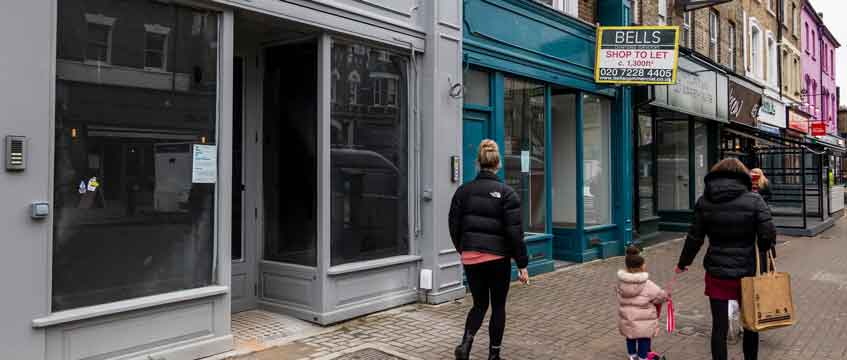Real estate ‘in the crosshairs’ as recession nears
The UK’s listed real estate market faces an environment that is “certainly the toughest in over a decade”, according to the equities team at investment bank Berenberg.
In a 262-page note, UK real estate: positioning for a recession, analysts Kieran Lee and Tom Horne explore the likely impact on the sector of an economic downturn, which they expect to begin before the year is out.
The analysts said inflation and an increase in risk-free rates will mean higher debt financing costs, delayed development activity and reduced occupational demand. However, they said the broad market is in a “relatively good place structurally”, with prudent leverage and little in the way of oversupply.
The UK’s listed real estate market faces an environment that is “certainly the toughest in over a decade”, according to the equities team at investment bank Berenberg.
In a 262-page note, UK real estate: positioning for a recession, analysts Kieran Lee and Tom Horne explore the likely impact on the sector of an economic downturn, which they expect to begin before the year is out.
The analysts said inflation and an increase in risk-free rates will mean higher debt financing costs, delayed development activity and reduced occupational demand. However, they said the broad market is in a “relatively good place structurally”, with prudent leverage and little in the way of oversupply.
“Our headline view is that these macroeconomic factors will set the tone for the sector and that we expect sentiment to remain weak,” they wrote. “However, despite the bearish background and assumptions, our analysis supports the view that the sector will remain operationally resilient, that significant debt covenant headroom can be maintained and that growing dividend yields will offer income potential.”
The pair highlight nine “preferred names” of the 28 real estate stocks covered by Berenberg, which they say boast “robust operations, high-quality management teams, strong track records, resilient end-markets and earnings growth visibility”: Unite Group; Empiric Student Property; Grainger; SEGRO; CLS Holdings; NewRiver; Impact Healthcare; Watkin Jones; and Industrials REIT.
The bank has also downgraded seven companies from buy to hold: Civitas; Derwent London; Helical; Supermarket Income REIT; Tritax Big Box; Urban Logistics REIT; and Warehouse REIT. It downgraded two – GPE and LondonMetric – from hold to sell, and upgraded just one – Workspace – from hold to buy.
“The past five to six years have been volatile for the sector, flipping between periods of rerating, net tangible asset decline and recovery as the UK muddled through the impacts of Brexit and the Covid-19 pandemic. However, current market conditions have shifted the mood music decidedly,” the Berenberg team wrote.
“The UK real estate sector is one of the most exposed to wider macroeconomic factors and is also late cycle, leaving it in the crosshairs of investors given the growing gap between public and private markets.”
By sector, Berenberg singles out London offices as the most cyclical. It now faces a “valuation precipice”, Lee and Horne said, with “heightened building obsolescence” and pressure on occupancy owing to hybrid working. A rise in speculative development has increased risks further.
Retail is “investable again” after “eight years of pain”, the analysts said. Healthcare is “well-supported” by an ageing population and government policy, the team added, with a growing investment market. Build-to-rent is a “stand-out” asset class and “increasingly relevant” as home ownerships proves increasingly unaffordable.
Sentiment has shifted in the industrial and logistics market, the team noted, but it still demonstrates operational resilience. “Strong growth in UK industrial and logistics shares has reversed sharply in 2022, with investors lumping these in the ‘high-growth’ and possibly even ‘tech-focused’ buckets,” they said. “Yet despite the sharp reversal of this sentiment, we still see longer-term value in core infrastructure, like modern and well-located warehouses, where recent reporting shows robust and broad-based occupier demand has continued.”
Across sub-sectors, Berenberg’s team expects a near-term slowing in the investment market, noting that it “may take time for vendor and purchaser expectations to realign”.
“Companies that have recently raised equity are likely to find it increasingly challenging to deploy capital into attractive opportunities, lowering earnings or risking over-paying for assets,” they added.
“Similarly, companies still hoping to complete non-core disposals have likely missed the boat, leading to increased leverage, lower likely returns and more risk, but increased earnings. Low investment volumes across real estate markets are not helpful either – this is likely to increase scepticism and mistrust in the reported valuations of listed companies and reduce sentiment further.”
To send feedback, e-mail tim.burke@eg.co.uk or tweet @_tim_burke or @EGPropertyNews
Image © Guy Bell/Shutterstock











